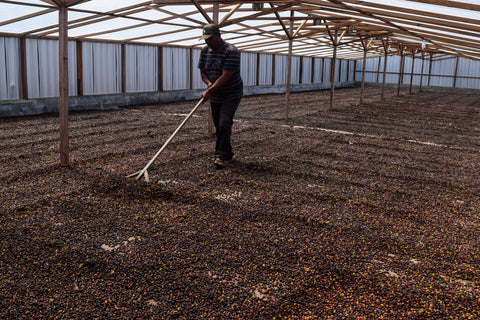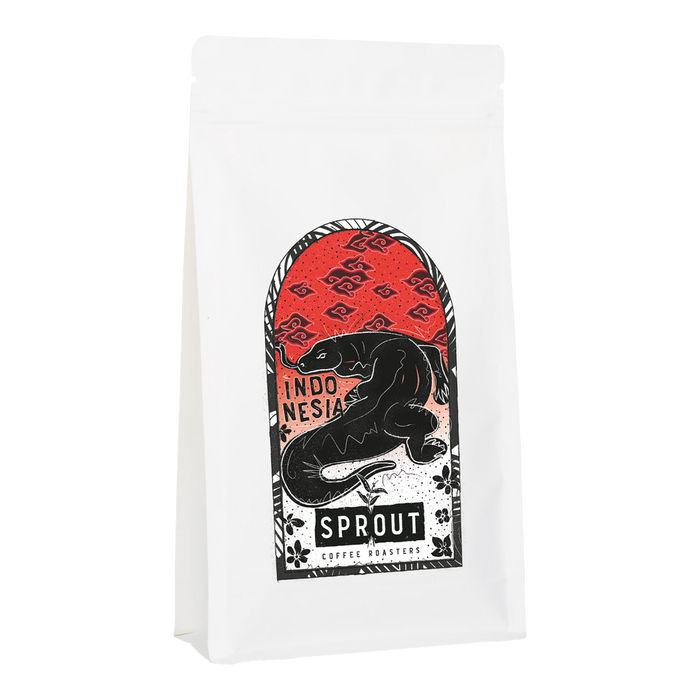
Kelipah
Chocolate Caramel Fudge, Tutti Frutti, Boozy

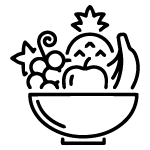

Brew Advice
Espresso
In: 19.7g
Out: 42g
Time: 28 seconds
Milky Espresso
In: 20g
Out: 36g
Time: 27 seconds
V60
Coffee In: 17g
Water In: 255g
Time: 2.30-3.00 minutes
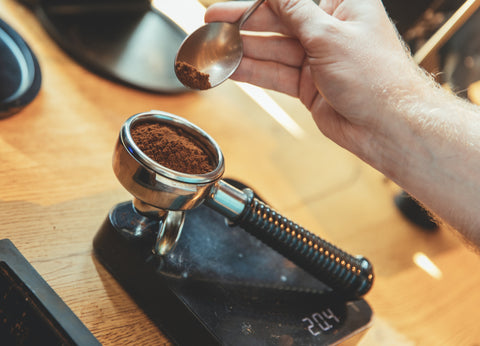
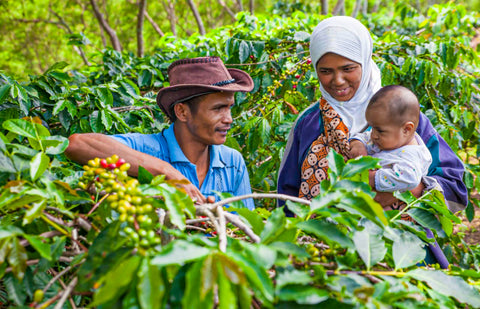
About this Coffee
Gayo Mandiri Coffee was established in 2011 by the Ministry of Cooperatives, and in the present day counts around 1,400 members. The coffee production is done by the cooperative members and commercialised by the cooperative. In the pursuit of quality, Gayo Mandiri has implemented new teaching and consulting strategies to help the producers to achieve better quality. The cooperative facilitates the know-how of the usage of organic fertilisers among the producers.
The central processing station is operated by members of the Amin family. Mr. Amin is a 2nd generation coffee producer who has managed approximately 1,800 hectares of production. Gayo Mandiri is a group made up of over 1,400 local producers and is directed by Mr. Amin.
Gayo Mandiri Coffee aims to empower all of its farming cooperatives to produce fully traceable and sustainable green bean coffee. The team is one of a handful of organic and Fairtrade certified coffee producers in Indonesia.
Humane Kopi Luwak for you to truly enjoy!
We are very excited to share this very first lot of Gayo Bener’s ongoing research project. They started this lot by inoculating the selected cherries with inoculant #08 before sealing the fermentation tanks to let the coffee ferment for a few days. After the desired pH level was achieved, the cherries are then dried on raised beds to allow air to flow around the fruit and enable an even drying process. The drying process of natural coffee can last 4 - 6 weeks. During this step, the cherries are turned or raked several times a day to help cherries dry more evenly. Once the fruits are completely dry (dried pods), they are then dry hulled to remove the coffee bean from the dried pods and then off to the dry milling process to sort the beans based on weight, size, and colour.
Besides wet-hulled coffee, Indonesia is known for its "Kopi Luwak" or civet coffee, which consists of partially digested coffee cherries, eaten and defecated by the Asian palm civet. The cherries are fermented as they pass through a civet's intestines, and after being defecated with other faecal matter, they are collected, washed, and dried. Increasingly however, the Asian palm civets are caught in the wild and kept in cages where they are force-fed coffee cherries.
Gayo Bener’s microbiologist, Dr. Intan and his team are currently working on a study to isolate the most desirable microbe from the palm civet’s faeces which can be reproduced in a lab environment. By applying these during anaerobic fermentation we can effectively replicate the process without having to use any more animals. The team applied different enzymatic tests to assess which bacteria or yeasts grow in the applied medium. From there they pick the ones with the most desirable effect on the arabica coffee processing.
In the case of this coffee, they focused on microbes which help break down the naturally occurring fruit sugar and pectin. Further, they found a bacteria/yeast mix that contains a significant amount of the fumarase enzyme, which breaks down fumaric acid into malic acid. Malic acid is one of the significant organic acids found in Kopi Luwak which contributes to the desirable acidity.
Through this process we can create a fruity and well-balanced cup profile without harming any more Palm Civets - forever changing Kopi Luwak into a cruelty free product.
Light in body, but not in tasting notes - this Innoculated bad boy has got Choc, Caramel, Tutti Frutti, Apricot, Overripe Banana, Boozy, Bubblegum... Just to name a few.
